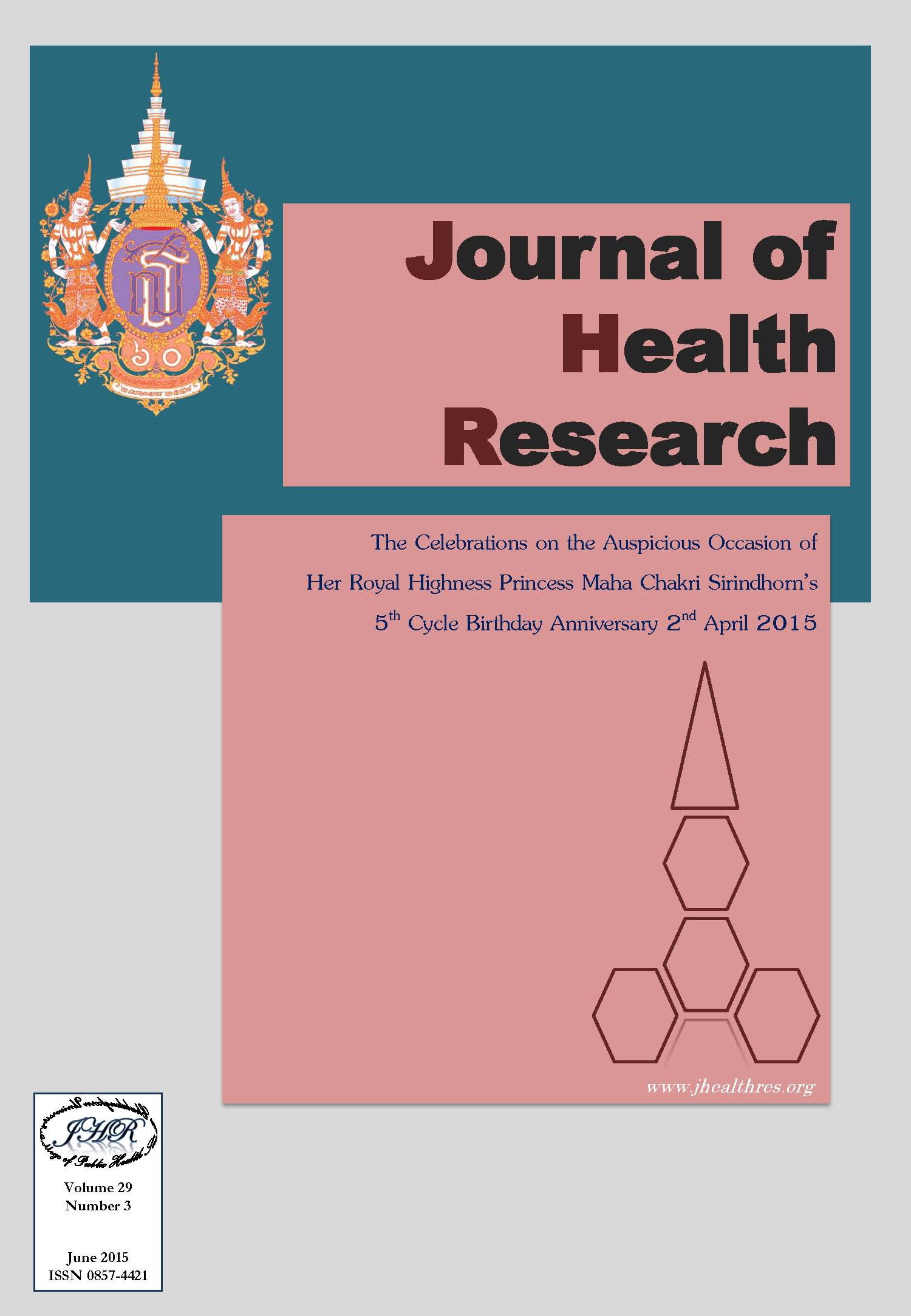Preliminary Report of Health Effects among Oil Spill Cleanup Workers and Volunteers, Thailand, 2013
Keywords:
Oil spill, Health effects, Trans, Trans-muconic acid, Benzene biomarkerAbstract
On 27 July, 2013, there was a mishap of more than 50 tons of crude oil spill near Prao Bay, Samet Island, Rayong Province, in the Gulf of Thailand. More than 2,000 people participated in oil spill cleanup. The objective of this study was to evaluate health effects in these people, and to initiate the surveillance process. We obtained their information via self-response questionnaires. This included personal data, work and oil spill exposure, personal protection to reduce exposure, medical history, and symptoms during cleanup. We also collected their after-work urines to test for trans, trans-muconic acid (t,t-MA), one of the benzene metabolites.
The majority of 2,118 cleanup workers and volunteers consented to participate were male (90.2 %), and military (45.7 %), whereas 36.9 % of them were company employees and 17.4 % were volunteer citizens (civil defense volunteers, students, etc.). Their age ranged from 16 to 71 years. Their tasks included digging and collecting contaminated soil/sand (57.7%), collecting spilled oil (23.5%), and others (18.8%). Most of them (88.6%) wore personal protective equipment (PPE): gloves (58.6%), boots (44.9%), protective suit (42.3%), and mask (37.3%). Two-third of them wore the PPE all the time, whereas the others wore only some of the time. Medical history revealed that 5.5% of them had allergy and 3.9% had hypertension. Regarding symptoms during cleanup, we observed dizziness (11.5%), irritated/ dry throat (9.9%) and irritated eyes (9.1%). However, the most frequent symptoms were pulmonary. Regarding the examination of t,t-MA, 57.3% were not detected, 42.6% were lower than 500 µg/gCr, and only 1 subject (0.05%) had t,t-MA higher than 500 µg/gCr. We followed this individual and found that his urine t,t-MA returned to normal. Their cleanup practice, symptoms, and t,t-MA indicated that some of them had substantial exposure to crude oil and its constituents, and hence should be put under further surveillance.







